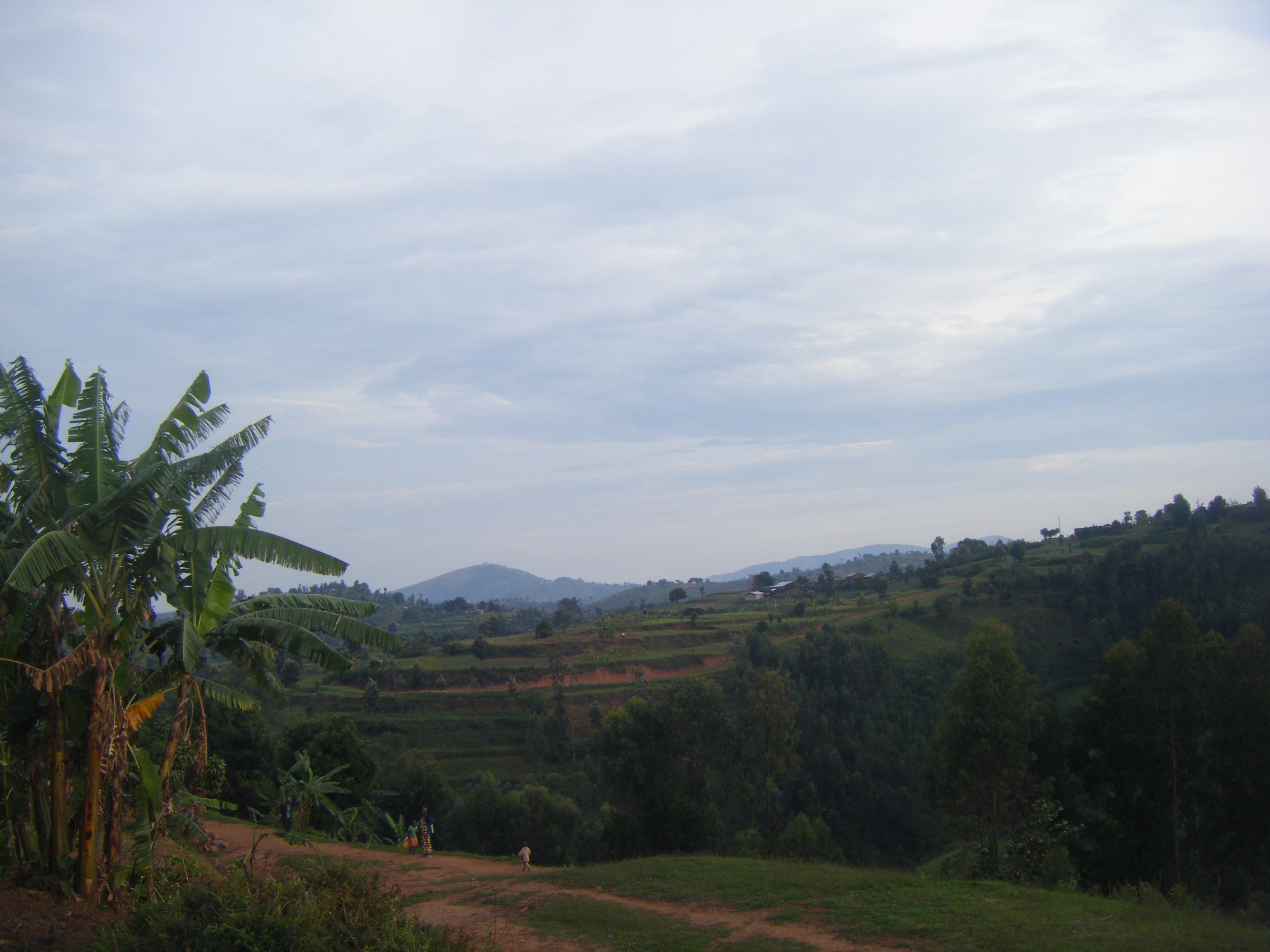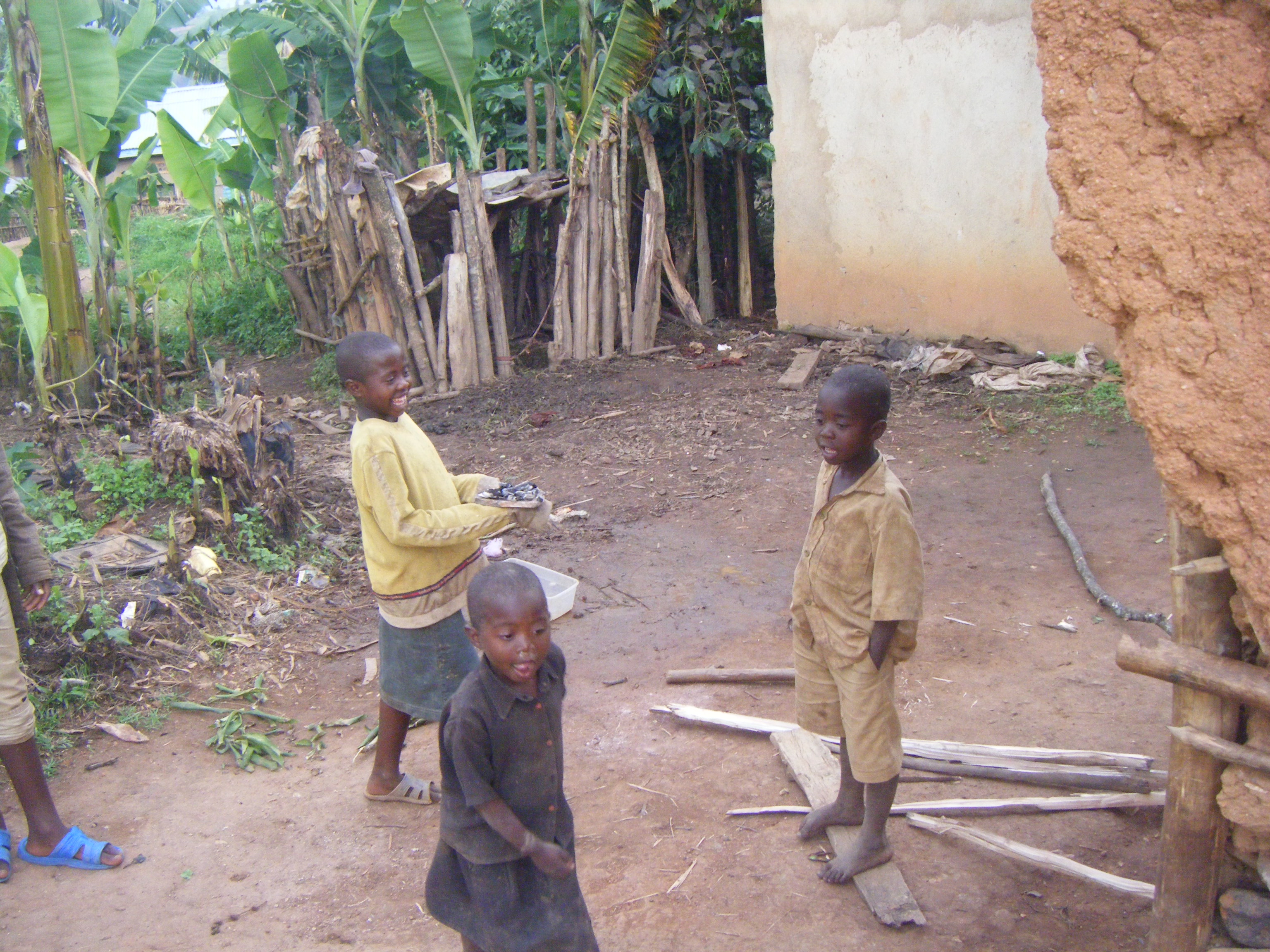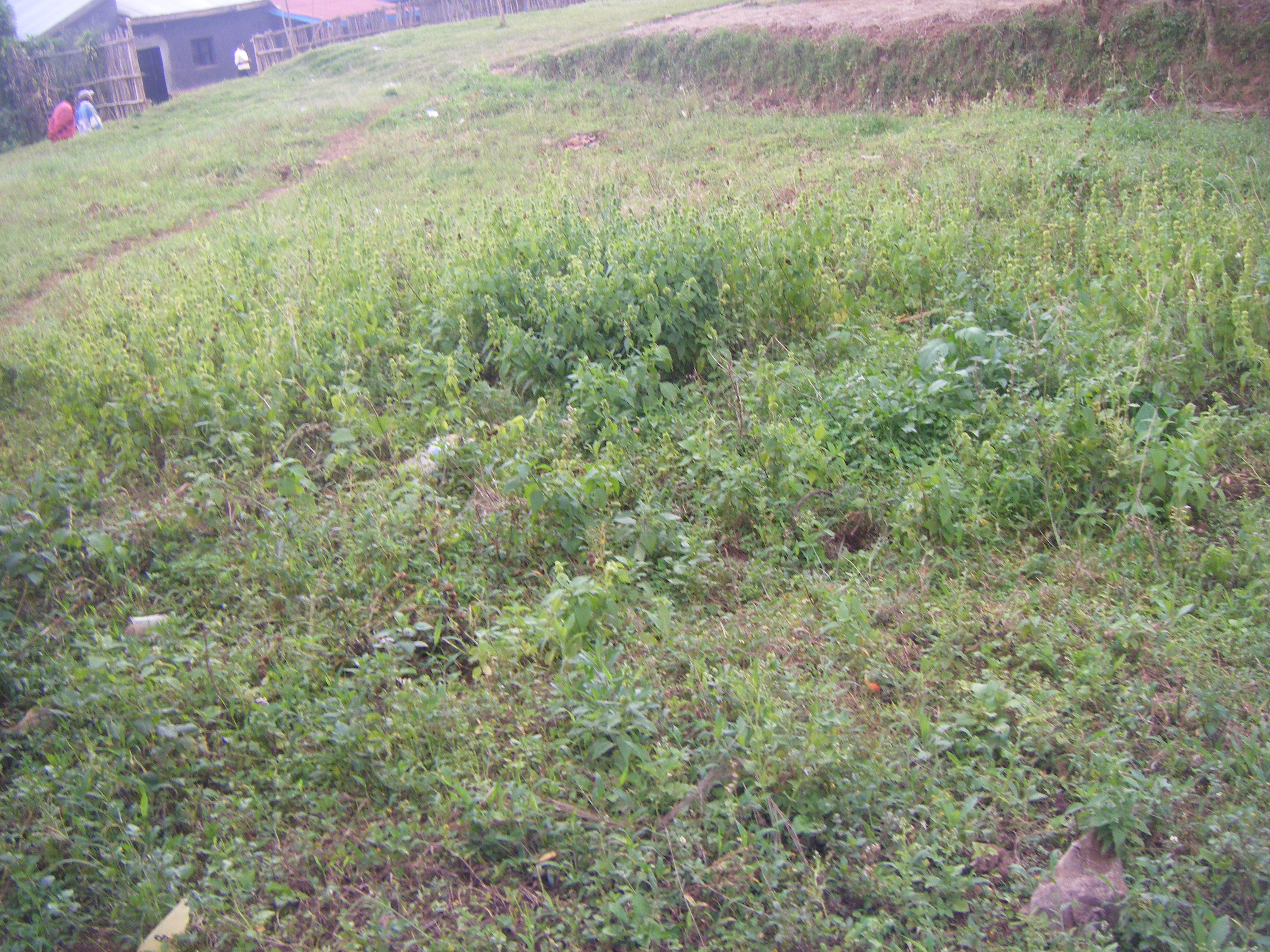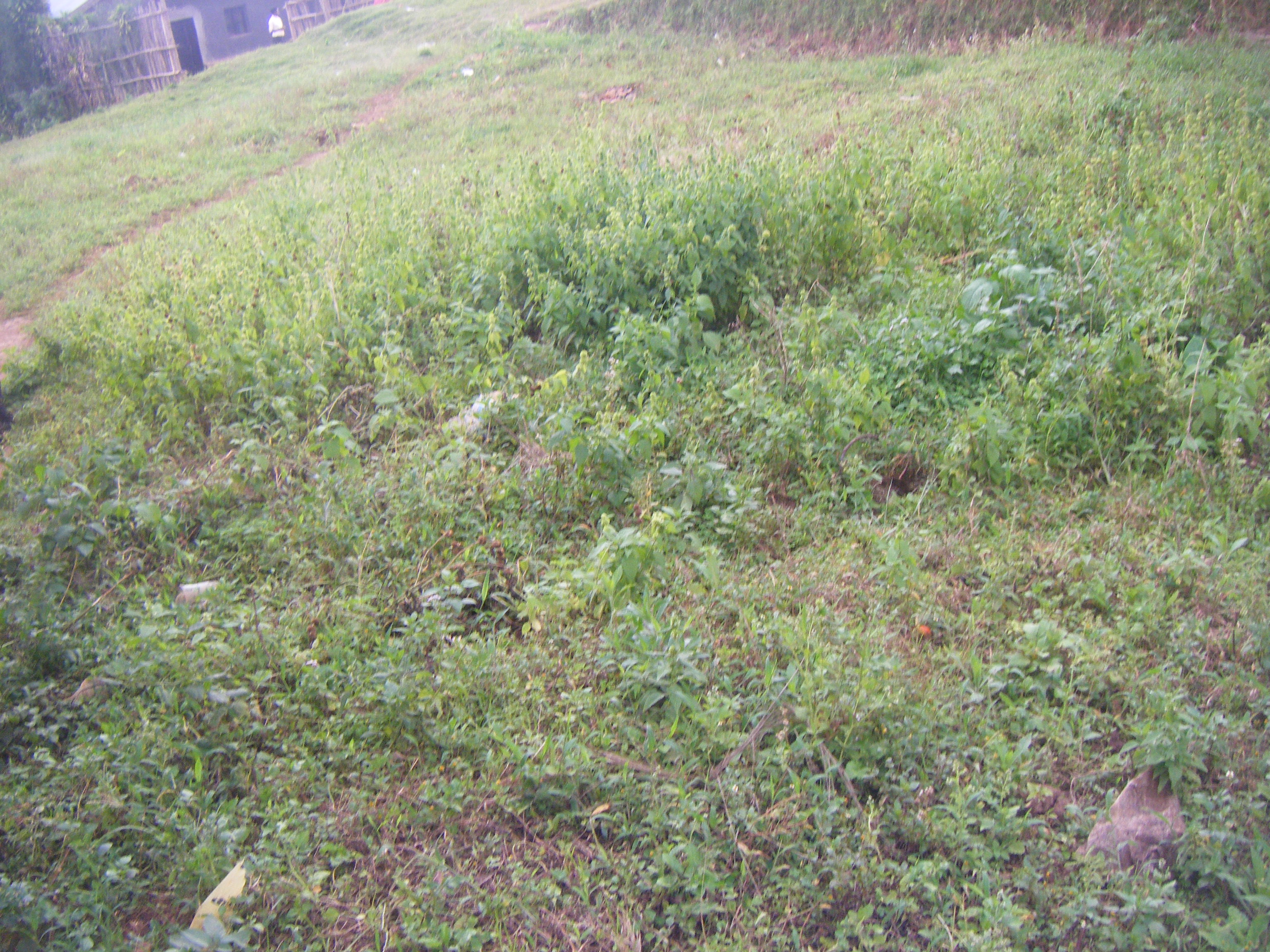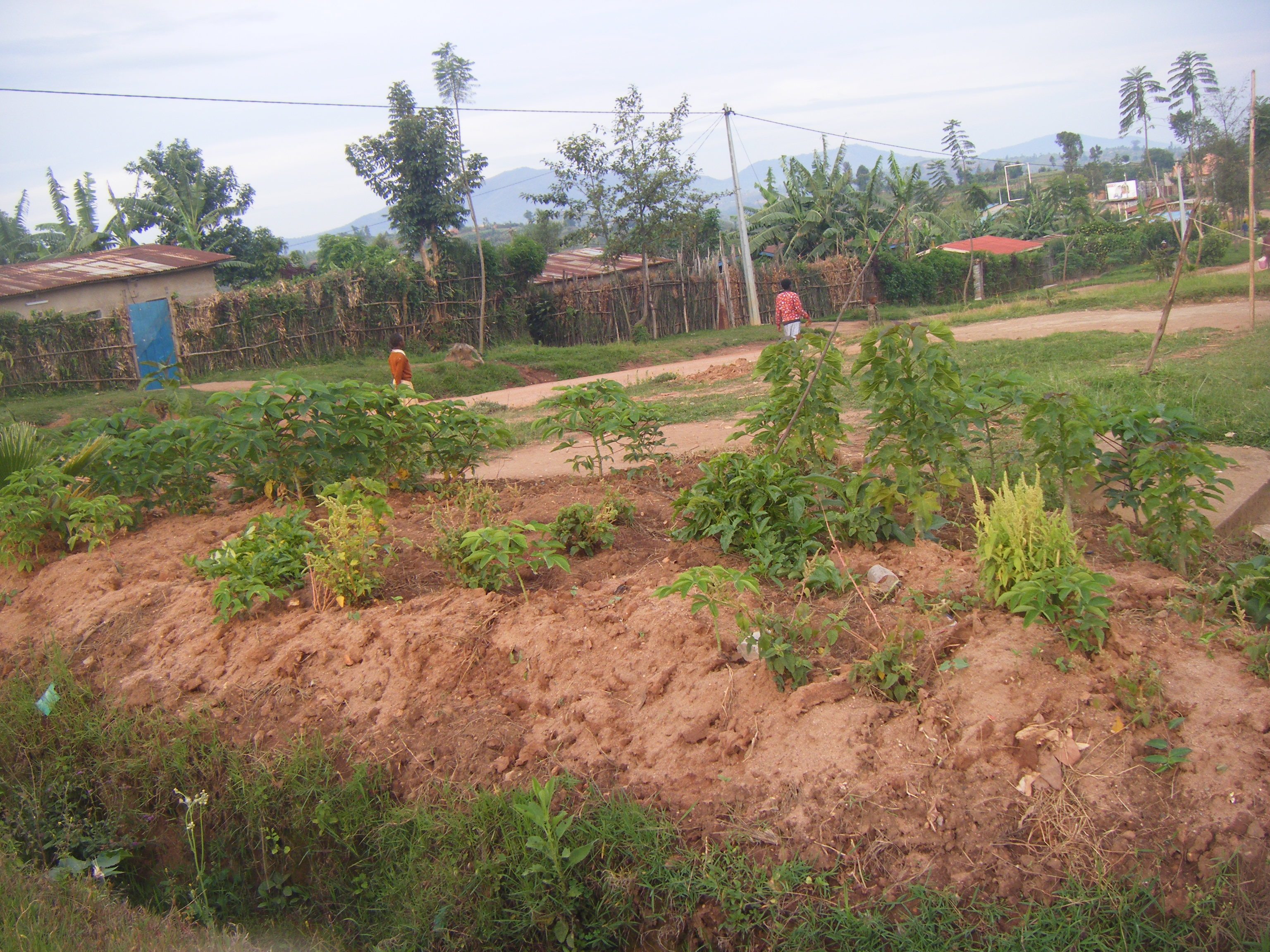Rwanda is described as the land of a thousand hills. When I walk in the villages of Southern province of Rwanda, I discover that this is indeed true. As you walk through the villages you see coffee and tea plantations, forests with evergreen trees and fields with different types of crops. In this land of a thousand hills you rarely walk or drive on flat land- you are either climbing or going down. Each morning and afternoon I see people crowded in village centers, some selling and buying, others just idly staring at every single person and car that passes by the road. As I walk through the villages I also see children of all ages going to school in their uniforms, looking very smart. To me, this means that people in the Nyaruguru district value education very highly.
One warm Saturday morning as I was taking a walk around the village, I met Vincent, a middle-aged man, approximately forty years old. He greeted me, as this is common for people to greet each other when they meet on the streets, and we shook hands. As we were heading in the same direction, he naturally started telling me about his life. He told me that he was working at the construction site at Kibeho (which is a Catholic church nearby), and that he was married with four children and one wife. I asked if the children were in school, and he said that they are all attending nine years basic education, but it was hard for him to provide for them all the school materials they need like uniforms, because he did not earn enough at the construction site. I asked about his wife and he told me that she stays home and looks after the children, and does not do hard labor because she mostly has backaches. We continued walking and then we reached his home which was near the road.
As we were standing outside, I realized that they had a piece of land that was bare. They had a cow in the backyard and a small mud house. I asked him what he thought of doing with the piece of land in front of his house and he said that he is still thinking of what to do. I then advised him to make a home garden, but he told me that the problem is time. I explained to him the benefits, especially getting fresh vegetables which are healthy for the children. It would reduces cost of buying foodstuffs at the market, because things like tomatoes, onions, greens carrots etc. can be grown at home and are healthy, fresh, and taste good. The fertilizer can be obtained from cow dung, because I could see they have cows. The cost of 20g of each type of seeds is 500Frw, which is not much compared to the harvest you get. There is also the fact that when you work on your garden. Together as a family, you improve on your relationship, children learn how to work and parents are proud of teaching and working with their children. Growing your own crops as a family is one of the most powerful and important thing we can do. It helps you thrive, nourish your family and maintain good health.
After listening to me, the man attentively called his wife and repeated what I had told him to her. She said that despite her backache she will try to make a home garden together with her husband and family. I gave them my contacts and assured them that I would visit them again to see if they put into practice what we had said. One month later I went back and it was amazing to see that they had indeed started a home garden and crops are growing and they are still working on it. The man was overjoyed telling me that he tries his best to work on it because he has seen for himself that it is useful. Although he already knew all about home gardens, it was new to him when I encouraged him. He looked for time by reducing the time of being in the bars relaxing with other men drinking local beer and increased the time to work for his family which is amazing. Together with his wife they are making a difference to their family through using home gardens.
I felt so happy and to this day I visit this family and give them all the support that I can possibly give. Thanks to Global Health Corps.

